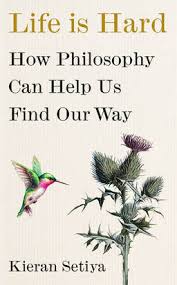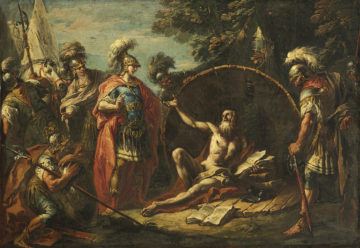by Dwight Furrow
 Does philosophy have anything to tell us about problems we face in everyday life? Many ancient philosophers thought so. To them, philosophy was not merely an academic discipline but a way of life that provided distinctive reasons and motivations for living well. Some contemporary philosophers have been inspired by these ancient sources giving new life to this question about philosophy’s practical import.
Does philosophy have anything to tell us about problems we face in everyday life? Many ancient philosophers thought so. To them, philosophy was not merely an academic discipline but a way of life that provided distinctive reasons and motivations for living well. Some contemporary philosophers have been inspired by these ancient sources giving new life to this question about philosophy’s practical import.
The problem with the contemporary discussion about philosophy as a way of life is that answers to questions about how to live are too often drawn directly from these ancient sources. Aristotle, the Stoics, or Epicurus are treated as sages bestowing wisdom on us blinkered moderns. While there is no doubt great wisdom in this ancient literature, one might question the relevance of their commentary. We live in vastly different circumstances confronting problems of which they never dreamed. Furthermore, there has been a flood of philosophical water flowing under the bridge during the past 2000 years. Is that just so much effluent to be drawn off while we contemplate the Stoic logos or Plato’s forms?
This literature needs input from contemporary philosophers who can apply their considerable analytic skills to problems in living as they emerge in modern society without being freighted with ancient ideologies. Hence the import of Kieran Setiya’s new book, Life is Hard: How Philosophy Can Help Us Find Our Way. It is a paradigm of what is needed in current discussions about philosophy as way of life. Read more »

